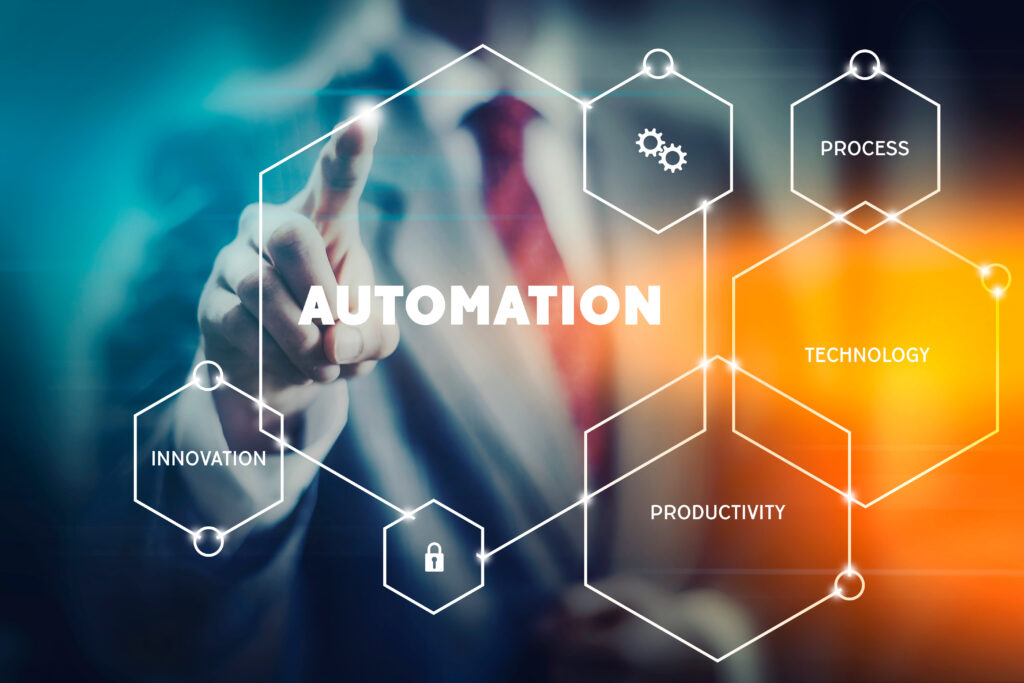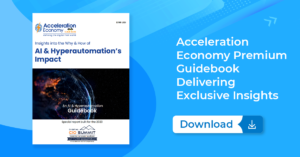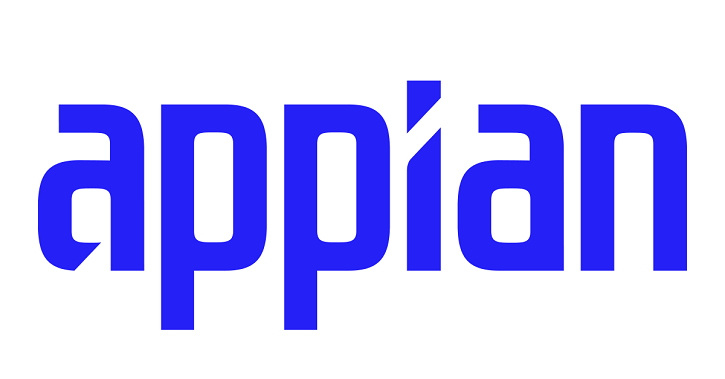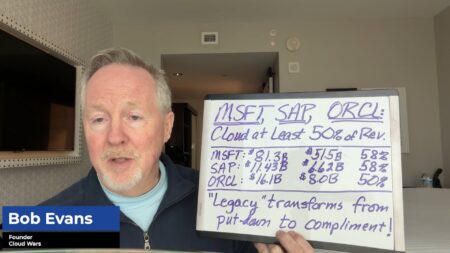Process automation empowers businesses to operate better and scale faster. Another surging technology that fuels digital transformation is low-code development.
When you combine technology that fundamentally improves the rate at which you can accelerate your business with another that enables you to put this capability in the hands of more users, you’ve found a winning formula.
For Appian, low code is the driving force: its Appian Platform is an end-to-end suite for process automation that supports data, engagement, implementation, and process mining features. All these functions are governed by the principle of low-code programming.
Appian is on the Acceleration Economy Top 10 Shortlist of AI/Hyperautomation Enablers.
Who They Are
Appian was founded in 1999 by Matt Calkins, Bob Kramer, Marc Wilson, and Michael Beckley; all four founders remain on the company’s leadership team.
While Appian is headquartered in McLean, Va., the company has a global reach with offices on every continent. Appian recently opened offices in Tokyo, Japan, and Mexico City, as well as a development center in Chennai, India. The company has over 2,300 employees and a global network of more than 560 partners. Worldwide, there are over 15,000 Appian-certified developers.
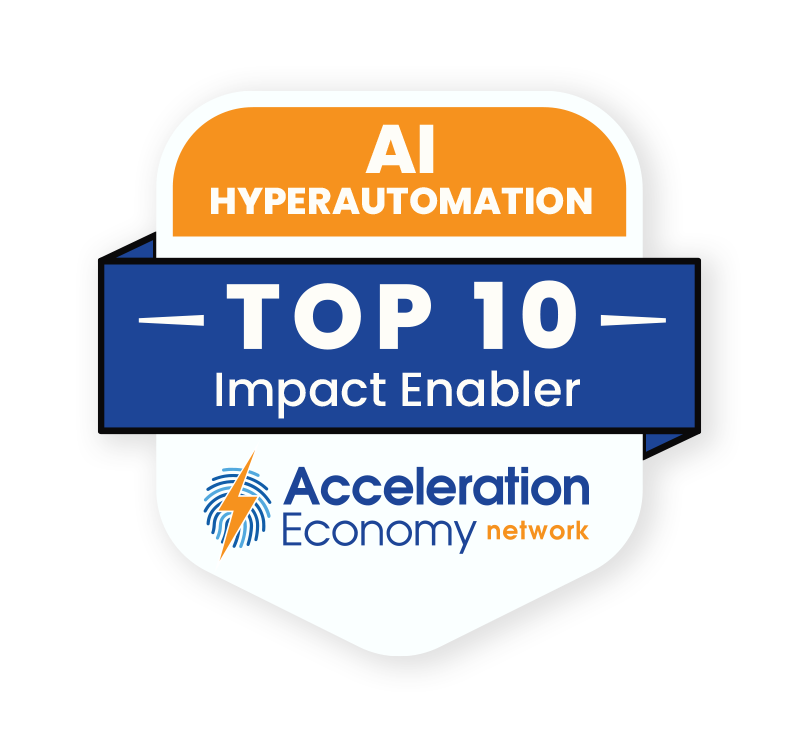
Which companies are the most important vendors in AI and hyperautomation? Check out the Acceleration Economy AI/Hyperautomation Top 10 Shortlist.
By the close of Q4 2022, Appian’s cloud subscription revenue had grown to $65.8 million, a 29% increase from the comparable quarter of 2021. Total revenue was $125.8 million. Appian trades under the symbol APPN on the NASDAQ.
Founder and CEO Matt Calkins led the company through its transition from a startup to its current status as a leader in low-code and automation. Another founder, Michael Beckley, steers Appian’s technical vision as CTO. Mark Matheos, the company’s CFO, has held positions at Ernst & Young, Sprint, Nextel, and AOL.
What They Do
The Appian Platform has four critical capabilities that, collectively, enable companies to develop, automate, and optimize business processes using low-code in a unified environment backed by enterprise-grade security. They enable customers to accelerate digital transformation initiatives.
The four pillars that make up the Appian Platform are data fabric, process mining, process automation, and what the company describes as total experience, which addresses user engagement and experience. Low-code tools enable any user to quickly understand the Appian Platform and build robust applications.
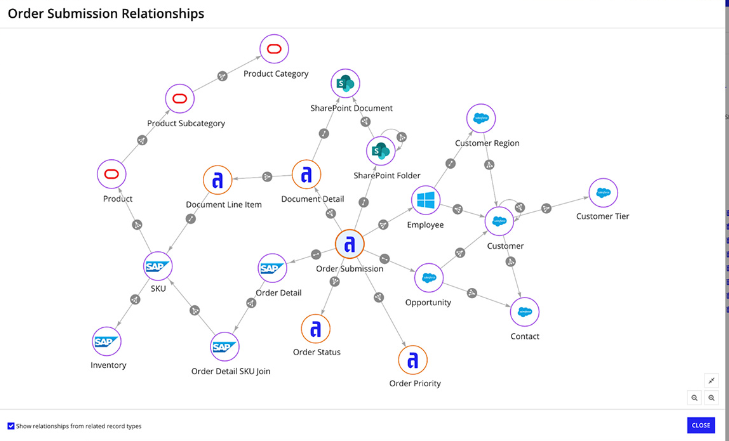
Data Fabric: Appian’s Data Fabric is a key differentiator in its product offering. A virtual data layer that sits on top of existing systems, it enables users to bring in information from dissociated sources while maintaining those data sources.
The Data Fabric enables low-code data discovery, unification, and optimization. With an integrated data management system, users can organize and access and utilize data from any source to accelerate the development of new, data-driven applications.
Process Mining: Appian’s process mining feature goes beyond identifying inefficiencies and conducting root-cause analysis; it functions as a continuous improvement tool with integrated metrics and KPIs.
“The one thing that we had always seen with process mining is that people tend to see it as a one-off,” said Andres Carrillo, director of analyst relations at Appian. “You go into a process, you do all the data work, and you find a process. Process mining goes somewhere else, and you never see it again.”
He adds: “We think of process mining iteratively because it’s a really important tool. Yes, you can use it for that initial process discovery, but we also have made sure to make it able to mine our own architecture for continuous process improvement.”
Process Automation: The Appian Platform enables customers to develop and implement process automation to streamline workflows. Using low-code tools, users can quickly automate systems, enforce business rules and policies, and process content from various streams across the organization, while orchestrating workflows.
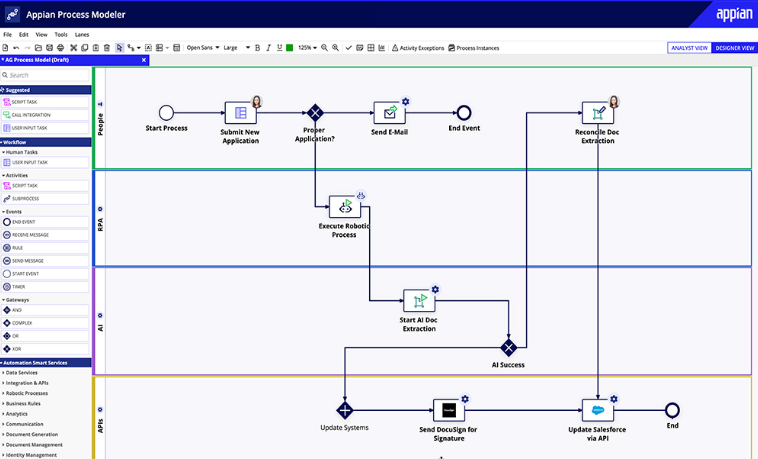
Appian’s automation toolset includes robotic process automation (RPA), embedded artificial intelligence (AI), and API integrations. Tasks can be easily split between the digital and physical workforce, while API integration supports automated system interactions.
Appian includes RPA and Intelligent Document Processing (IDP) functionality that is fully programmable through the platform’s low-code functionality.
Total Experience: Appian’s experience and engagement features enable users to design high-functioning user interfaces. Applications are compatible with all web and mobile digital touchpoints.
Appian integrates DevSecOps into its low-code architecture so users can build secure applications. The company is so confident it can deliver value that it offers an 8-Week Guarantee of success in building the customer’s first application, as well as the ability to become a developer in just two weeks.
Appian Community is the company’s hub for training, certifications, support, and documentation. The community includes 200,000-plus developers across partner and client organizations and an App Market with over 800 components and applications available.

“Appian places immense value on customer success. Not only do they guarantee delivery of your first project within eight weeks, they also offer extensive education, expert training, enterprise-level security and availability, and more. In a word, Appian is a partner.”
Toni Witt, startup founder, Acceleration Economy analyst, and host of AI/Hyperautomation channel
Who They’ve Impacted
Appian to date has over 5,000 successful customer implementations. The company caters predominantly to large organizations that require a scalable automation architecture. In conversation with Acceleration Economy, Appian highlighted two customers that demonstrate the power of its platform.
- NatWest Group: The banking giant chose Appian as the tool to automate workflows for loan governance. NatWest reduced workflow time from 73 days to 73 minutes, automated 43% of workflows, and optimized 53% of processes.
- S&P Global: Since adopting the platform, the company has automated over 1,400 processes for over 7,000 users. In total, S&P Global has completed more than 130 million tasks through Appian applications, 30 million of which were completed in 2022 alone.
Why Appian is on the AI/Hyperautomation Top 10 Shortlist
Appian supports companies in their digital transformation efforts by providing a unified process automation platform. The company has been selected by our practitioner analysts for inclusion on our AI/Hyperautomation Top 10 Shortlist because:
- Low-code development ensures rapid, efficient app development
- Unified data, process mining, and user experience tools enable users to create best-of-breed applications and automations based on real-time data and requirements
- Integrated DevSecOps provide a secure foundation for process automation that is scalable and enterprise-ready
- Customer endorsements like those from NatWest and S&P Global validate the robustness and scalability of its automation technology


